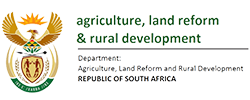FARMING SIMULATOR GAME: KIDS LEARNING TO FARM DIGITALLY
The best way to learn about the dynamics of farming in modern days is to look no further than video games. Farming Simulator is a video game that practically guides you to the most realistic farming simulations, equipping the player to tackle the business side of farming.
It’s ideal for any novice farmer entering the agriculture space or for kids inspired to follow in their family farming traditions.
“You’ll spend time managing your balance sheet for the year when deciding what equipment to buy, which livestock to purchase, and how much seed you’ll need for the season. You can drive equipment yourself, hire NPC workers to assist you, or enlist friends for multiplayer farms with up to 16 players” noted PC Games Magazine.
The video game can be played on XBOX, PS4 and personal PC. It was developed 12 years ago by Giants Software, a Silicon Valley tech company based in the United States.
German Chancellor Angela Merkel is also reportedly an avid fan of the simulator, maybe explaining Germany’s obsession with precision farming.
With version 20 Farming Simulator expected to be on the cards, it was rudimentary to begin discussions on South Africa’s Agriculture ICT readiness.
According to Stastica calculations, the video game market in South Africa was growing at R3.5 billion in 2018 and was expected to reach R5.44 billion mark by 2023.
“The dominance of big game companies poses a significant challenge for homegrown game developers wanting to break into this increasingly competitive sector. Research has found that more than half of South African gaming companies remain ‘very small’ with annual turnover of less than R2 million” said a PWC Entertainment and Media Outlook: 2019 – 2023 Report.
With the Films and Publications Amendment Act 11 of 2019 (FPAA) concerns aside, the absence of agriculture in the video gaming industry is very salient. Local indie game developers may have in some way also contributed to this ignorance, having shown no urgency in spurring government and organized agriculture into action.
According to a UK Farmers Weekly magazine, it reported that indie agriculture games had a positive effect on kids in countries like the US, UK, Australia, China, India and Nigeria. This cohort apparently showed superior knowledge off agricultural production, machinery operation and market supply physics when put to the test. Agriculture video games in the above-mentioned countries were driving and contributing to the increase of video game sales.
But by now thou, it has become clear that the agricultural profession and agribusinesses combined desperately need ICT specialized skills, to confront new global business modes of transacting, communicating and sharing knowledge.
Unfortunately, these skills are rare and in short supply, with those available currently demanded at our premier scientific institutions like ARC, CSIR and TIA.
Compared to other First World countries, our agriculture was way behind schedule on techno agriculture innovations according to a study commissioned by Microsoft (‘Paving the way towards digitalizing agriculture in South Africa).
“The After Access survey suggests that in South Africa, there is an increase in the digital divide “not only between those with access to the internet but also between those who are connected and have the means and skills to utilise the internet optimally and those who are not.”
Altogether, the study findings were concerning as the country collectively had high digital literacy problems, with rural and small-scale farmers and workers missing out on low-cost technology solutions for their farms and access to information.
Furthermore, the Microsoft report survey further noted that South Africa needed to develop digital literacy programs as a matter of urgency, with universities and government coordinating such programs for high skilled jobs as the development of technologies such as Internet of Things (Iot) and Artificial Intelligence (AI) emerge.
It was now incumbent upon Agricultural Faculties and/or Agricultural Colleges to lead in this domain, collaborate with government, ICT departments and local video games companies, to develop models, manuals, codes, applications and user systems that are uniquely poised to meet current and future agriculture ICT demands.
Ironically, most digital platforms have increasingly noted a surge in consumer patterns drifting towards digital behaviours mainly propelled by COVID-19 regulations, consequently arming them with digital tools to use for daily occupation.
Some industries already in the practice of IoT and AI, witnessed a jump in sales and consumer engagements.
Likewise, under the new norm, indie games such as the Farming Simulator would have become ideal substitutes for school children to learn about agriculture playfully while at home under lockdown.
Clearly, there is plenty for agriculture to consider in this digital evolution era.
By: Stephen Monamodi (MBA)
GITO & Corporate Communications
National Agricultural Marketing Council


